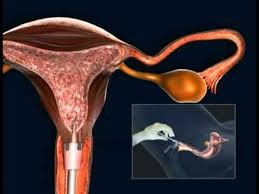Assisted reproductive technology (ART) has revolutionized fertility treatment. The most common type of ART is in vitro fertilization (IVF), in which a woman’s eggs are removed and fertilized in a laboratory, and the resulting embryos are then transferred back into the woman.
A recent study, testing a procedure that dates back 100 years, offers hope of a solution that is significantly cheaper and quicker. Flushing the fallopian tubes with an iodized poppy seed oil.
The procedure was first carried out in 1917. It is a dye test conducted under X-ray and is used to examine the uterus and fallopian tubes of women having trouble becoming pregnant. Either water-based or oil-based solutions are used to flush the tubes.
HSG was designed as an imaging procedure, rather than a treatment.
Pregnancy rates among infertile women has increase after their tubes had been flushed with either water or oil during HSG procedure.
The study involved 1,119 women who were trying for a child. Half of the participants received an HSG using oil- Lipiodol Ultra-Fluid, an iodized solution of fatty acids made from poppy seeds
The other half of the participants had an HSG using water. 40 percent of the women in the oil group and 29 percent in the water group conceived within 6 months of having the procedure.



